Scholars’ Study #5

We are pleased to circulate the fifth edition of the Scholars’ Study. The aim is to inform our community about publications, events, or other news in relation to the scholars and more widely to psychoanalysis beyond the clinic. The Scholars’ Study should facilitate a home and community for the Scholars where we can all share ideas, get to know each other, and learn about events, or other activities.
We are pleased to share the latest edition of the newsletter with you.
Please continue to send us your news, publications, events, and texts.
Editors: Dr. Theodora Thomadaki (University of East London) and Dr. Jacob Johanssen (St. Mary’s University)
Associate Editors: Ruth Llewellyn and Amy Tatum
New Publications & Events
A reminder to please send details of your new publications or events where you are a speaker/organiser to the newsletter team so that we can collate a list as part of this newsletter. Please send your updates to the Scholars’ Team.
PhD Research
The BPC network is a great opportunity to let others know about PhD research that you are supervising. We’d like to include a regular section in the newsletter on PhDs, so please do send names and titles/a line about the main topics to the newsletter email too. We hope to be able to profile PhDs and to bring them in as Associate Members in due course.
Should you have any other ideas for activities and events within the network, do drop one of us a line. We’d be very happy to help.
With kind regards
The Scholars’ Network Events Sub-Committee
Brett Kahr | Caroline Bainbridge | Jacob Johanssen | Poul Rohleder | Theodora Thomadaki
CONTENTS:
- An interview with Dr Nini Fang (University of Edinburgh, UK)
- University of Sussex appoints Professor Sasha Roseneil as next Vice-Chancellor
- Comparative Psychoanalysis Book Series: David Henderson and Jon Mills, Series Editors
- Barbra Taylor directs the Wellcome Trusted funded ‘Pathologies of Solitude’ research project at Queen Mary University of London
- Solitude and Covid-19 by Barbra Taylor
- The Distance Cure a conversation with Hannah Zeavin and Charlie Williams
- Josh Cohen in Conversation with Akshi Singh
- BACP Grants Peer Review Panel (Research)
- Jacob Johanssen publishes co-authored book: Event Horizon: Sexuality, Politics, Online Culture, and the Limits of Capitalism
Texts from our Scholars:
There are multiple events from our community. Here are just a selection:
- In Conversation with Susie Orbach
Wimbledon Guild Counselling Training
13 May 2022 - Fashion
WPF Therapy
21 May 2022 - Orthodox Masculinity and the Therapeutic Encounter: Working affirmatively with male clients
Wimbledon Guild Counselling Training
20 May 2022
An Interview with BPC Scholar and New Associations editorial board member, Dr Nini Fang (University of Edinburgh)
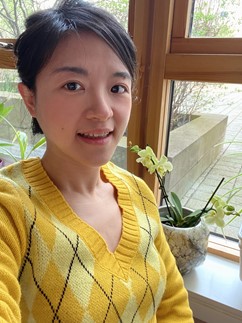 Dr Nini Fang is a lecturer in Counselling and Psychotherapy at the University of Edinburgh and the Associate Director for the Centre of Creative-Relational Inquiry. She has published extensively in the field of psychosocial studies and cultural studies. She works with creative, qualitative methodology in composing evocative accounts of the other and their lived domains. Her teaching pushes for a more politically responsive curriculum that addresses social inequality in the consulting room. She is a Scholar of the British Psychoanalytic Council. She sits on the Executive Board for the Association for Psychosocial Studies, and the Editorial Board for New Associations (British Psychoanalytic Council).
Dr Nini Fang is a lecturer in Counselling and Psychotherapy at the University of Edinburgh and the Associate Director for the Centre of Creative-Relational Inquiry. She has published extensively in the field of psychosocial studies and cultural studies. She works with creative, qualitative methodology in composing evocative accounts of the other and their lived domains. Her teaching pushes for a more politically responsive curriculum that addresses social inequality in the consulting room. She is a Scholar of the British Psychoanalytic Council. She sits on the Executive Board for the Association for Psychosocial Studies, and the Editorial Board for New Associations (British Psychoanalytic Council).
1) How did you first encounter psychoanalysis?
I became intrigued by the concept of the unconscious and the phenomenon of ‘repetition compulsion’, a term I later learned in my therapeutic training, during my first career as a medical social worker. Quite a lot was going on for me then in my professional, as well as private, life. At work it was a period of despair where my passion to help was thwarted by an ongoing feeling of helplessness towards the lived realities of the people whom I worked with. I felt I had to do something for them whilst also becoming overwhelmed by their troubling realities, which I did not have the therapeutic frameworks to process. My sense of futility deepened as I felt that the work I sought to do with the service users, helping them towards positive changes, seemed to be constantly offset by the family dynamics.
Stephen Mitchell’s (2009) term ‘embeddedness’ captured this paradox vividly: of desiring one thing yet being unable to align one’s action with the desired outcome to effect any real changes. It was only years later during my therapeutic training that I was able to connect this sense of frustration in my professional life with my own sense of powerlessness in my own family situations for which I had also been burdened by an unrealistic expectation to resolve and make better. I remembered feeling stunned, or ‘stung’ more like, when I came across this section in Irvin Yalom’s When Nietzsche Wept (1993) which was a fictional account of clinical encounters between Josef Breuer as the analyst and Nietzsche the patient:
“Breuer now fully acknowledged his own despair and his need for help. He stopped deceiving himself; stopped pretending he was talking to Nietzsche for Nietzsche’s sake; that the talking sessions were a ploy, a clever strategy to induce him to talk about his despair (p. 199).”
This must be one of my earliest encounters with psychoanalysis which led to a reflexive moment where I turned my attention inward and asked myself: ‘what is going on here?’
2) In your work, you draw on Fairbairn and object-relations theory more generally, could you tell us what fascinates you about those approaches (perhaps also compared to other schools)?
Yes, I am massively fascinated by Ronald Fairbairn’s work which I think has great potential to help us re-think human conditions psychosocially. My interest in Fairbairn took root quite early on. In fact, my doctoral thesis specifically explored the phenomenon of depression through Fairbairn’s work, charting a theoretical trajectory from instinct theory (Freud, Klein) to object relations theory (Fairbairn). This helped me craft an argument for the potential of Fairbairn’s theory. It was not a conventional piece of work, but then Fairbairn was not a conventional thinker for his time. To bring the central dimension of Fairbairn’s theory to life, which is ‘object-relatedness’, I explored psychoanalytic theory through an ‘imaginal dialogue’ with Virginia Woolf!
This method requires troubling the edge of reality and fantasy, much like Yalom’s When Nietzsche Wept which I mentioned earlier. My letters to Virginia Woolf traced the process of relating to Woolf (and her work) personally and engaging (my imaginative) Woolf in a conversation about psychoanalysis considering her troubled relationship with it. Through my letters to Woolf, I also captured the transformation of my own understanding of the nature of depression and established a line of theoretical argument that, framed in Fairbairn’s system, depression can be understood as an actively organised psychic manoeuvre to defend against changes to the endopsychic structure. In other words, as a defence against the disintegration of a particular sense of self sponsored by internal object relationships.
I am hoping to take Fairbairn’s work further which I think has great potential to grow into a unique psychosocial framework on theorising political oppression. For example, Fairbairn’s concept of ‘moral defence’, ‘endopsychic structure’, and ‘object-relatedness’ are particularly useful in helping us see that there isn’t a psychic reality that is not constituted by social relations that we have, experienced, recollect, or desire. Acknowledging this means we can grapple more meaningfully with the psychosocial questions of how we come to be the person we are through our social relations with others and the surrounding world. There’s a richness to Fairbairn’s conceptualisation of bad object in the sense that a bad object is not a singular entity. He differentiated different kinds of bad object, based on their qualitative differences, into the ‘rejecting’ and ‘exciting’ objects. These bad objects are like characters in their own rights, capable of engaging the self in ways that are often maddening and intolerable (hence they remain repressed and unprocessed!).
A significant conjuncture in Fairbairn’s work is that he later came to believe these bad objects also engage and correspond with particular aspects of the self, leading to these aspects of the self being split off and repressed too. In other words, not only is the exciting object and the rejecting object internalised and repressed, but so too are the parts of the self that identify with these bad objects. This is what I think imbued Fairbairn’s work with profound psychosocial potential that is yet to be fulfilled – for example, how we adhere to hegemonic structures and ideologies such as ‘whiteness’ at an unconscious level; this adherence, to Fairbairn, signals an implicit identification with the bad object as both powerful and tantalising and is what lies at heart of the ‘return of the repressed’. This is perhaps why, despite the political agenda to decolonise the institution, we continue to find ourselves struggling with the nostalgia for whiteness which resists real change.
3) Your work deals with questions of racialisation and injustice in the clinic, and many other aspects. What is your view on the current relationship between race and the consulting room?
As a trainer in Counselling and Psychotherapy, I have been pushing for a more psychosocially informed curriculum that can help us attend to issues around social inequality and political oppression in the consulting room. Fairbairn has certainly been significant in my navigation into psychosocial studies. His work, when extended psychosocially, helps me see that no symptom is purely personal! I talked just now about the nostalgia for whiteness in institutional spaces.
Sadly, as a social force this is not confinable and often finds a way to permeate the pedagogical relations between the racialised tutors and the (white) trainees or vice versa. I wrote about how I got into trouble after delivering a session on race and racism because some of the white trainees found the session ‘too unsettling’ for them (Fang, 2021). We can see this as a case of the ‘return of the repressed’ that the feelings of white supremacy that has been repressed, when put under threat, came back with a vengeance! Then I had to deal with the allegation of ‘fomenting racial tension’ in class. That was a tremendously challenging time especially when compounded by certain neoliberal logics of the contemporary university which prioritise student satisfaction over the inevitably demanding tasks of critical thinking. I am sorry to report that I have not learned my lesson though – the work must go on! This nostalgia for whiteness is still pretty much all around us, and it demands the racialised other to fit in by supressing our individual and cultural differences to be seen as ‘proper’, in Dalal’s (2009) word. This has the consequences of alienating the racialised practitioners in a community where they should be able to find support and solidarity.
Even more problematic is that this ‘self-blanching’ through the racialised practitioner’s adopting the Eurocentric, white way of conducting the self can also generate an implicit demand on the racialised patient to suppress, if not dissociate from, their own racial sufferings under the sway of the therapist’s own disassociation from their cultural heritage. To bring Fairbairn back in, this ‘blanching’ can also be understood as a form of ‘moral defence’: how we justify the external bad object (racism) by blaming oneself for failing to fit in or failing to be ‘proper’ to gain the approval of the dominant group; and by genuinely buying into this ideology, the external world can be seen as liveable and good at the cost of the self being seen as bad, inappropriate, and impotent.
4) Can you tell us about any projects you are currently working on?
Having told you so much about Fairbairn, you would not be surprised to hear that I am currently working on a project on Fairbairn! My project is entitled: ‘Culture as the bad object’ through which I explore the psychosocial potential of Fairbairn’s work by exploring how it might help us think about racial relations differently particularly in the context of UK’s anti-immigration culture. I hope that through this work I can re-install Fairbairn’s relational thinking and introduce his work to the psychosocial scenes that we know has remained on the periphery.
Exploring how social and cultural forces shape the intimate, lived world is central to my work. I have also been collaborating with Dr Lucy Stroud who develops the psychosocial concept of ‘social melancholia’: the collective experience of melancholia of an often-marginalised community when they are deprived of social and communal space or political acknowledgement to grieve the multi-faceted socio-economic losses in the aftermath of political oppression (Stroud, 2022). Our collaboration seeks to take the concept of social melancholia further by exploring the hidden dimensions of the lived realities of socially deprived teenage girls in rural Aberdeenshire. The project is entitled: ‘Re-imagining the Real-Life magazine, teenage girls and melancholic communities’. Please get in touch if you would like to hear more about these works – and stay tuned!
References:
Dalal, F. (2009) ‘The Paradox of Belonging’. Psychoanalysis, Culture & Society, 14(1), 74–81.
Fang, A. (2021) ‘The Aggressive Potential and the Yellow Anger’, Psychoanalysis, Culture & Society, 26, 561-578.
Mitchell, S. (2009) Relational Concepts in Psychoanalysis: An Integration. London: Harvard University Press.
Stroud, L. (2022) ‘Melancholic Communities: Trauma, Neoliberalism and the Rise of Chat Magazine’. Journal of Psychosocial Studies. https://doi.org/10.1332/147867321X16401162893334
Yalom, I. D. (1993) When Nietzsche wept. New York: Harper Perennial.
News from our Scholars
University of Sussex appoints Professor Sasha Roseneil as next Vice-Chancellor
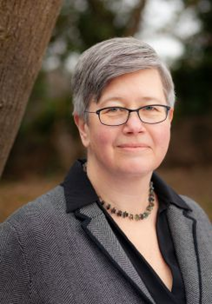 The University of Sussex has appointed the world-renowned, interdisciplinary social scientist Professor Sasha Roseneil as its next Vice-Chancellor. Joining in the summer of 2022, Professor Roseneil will become Sussex’s ninth Vice-Chancellor – and first female VC – in its 60-year history.
The University of Sussex has appointed the world-renowned, interdisciplinary social scientist Professor Sasha Roseneil as its next Vice-Chancellor. Joining in the summer of 2022, Professor Roseneil will become Sussex’s ninth Vice-Chancellor – and first female VC – in its 60-year history.
Professor Roseneil has a long track record of forward-looking and collaborative leadership. She is currently Pro-Provost (Equity and Inclusion) and Dean of the Faculty of Social and Historical Sciences at UCL.
Professor David Maguire will continue as interim Vice-Chancellor until Professor Roseneil takes up her post in August. Find out more on their website.
Comparative Psychoanalysis Book Series: David Henderson and Jon Mills, Series Editors
As a project of the Comparative Psychoanalysis Research Group, Department of Psychosocial and Psychoanalytic Studies, University of Essex, my colleague, Jon Mills, and I are in discussions with Routledge about developing a book series with a focus on comparative psychoanalysis. For the purposes of the book series comparative psychoanalysis is broadly conceived. We are open to projects from a range of perspectives, including theoretical, clinical, historical, philosophical, cultural, or sociological.
At this stage in the negotiations we have been asked to provide names of some people who might be interested in submitting book proposals for the series at some time in the future. This of course would not imply any commitment on either side at this point. Are you working on a project that might find a home within the series? If you would like to discuss this further by email or on Zoom please let me know. Details for the project:
Comparative Psychoanalysis studies controversy and dialogue in psychoanalysis. Intellectual, personal, and institutional conflict are endemic to the history of psychoanalysis. Alongside this there are creative efforts to establish understanding and communication among differing perspectives. Comparative methodologies are encouraged among all schools of psychoanalysis regardless of topic, theoretical or clinical orientation, or application to the behavioral sciences and humanities including historical reassessments, conceptual clarification, clinical exploration, reflections on the future of applied psychoanalytic thought, and attempts to articulate the conditions for fruitful dialogue. All subject matters in the arts and humanities, philosophy, anthropology, cultural studies, and the human sciences are ripe for comparative investigation within the frameworks of theoretical, clinical, and applied psychoanalysis. As an inherently interdisciplinary field of study psychoanalysis requires a robust understanding of comparative methodology. Controversial discussions and criticism are invited. In the spirit of pluralism, Comparative Psychoanalysis is open to any theoretical school in the history of the psychoanalytic movement that offers novel critique, integration, and important insights in comparative scholarship.
Series Editor’s Biographies:
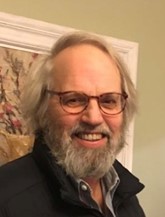 David Henderson, PhD is Director of the Comparative Psychoanalysis Research Group, Department of Psychosocial & Psychoanalytic Studies, University of Essex, UK and is a Jungian analyst and practicing psychotherapist. He teaches on the MA in Jungian and Post-Jungian Studies and the BA in Psychoanalytic Studies, as well as supervising PhD research. Before his appointment at Essex, he was a member of the Centre for Psychoanalysis at Middlesex University, UK. He founded and ran the Association of Independent Psychotherapists training in psychoanalytic psychotherapy from 1988 until 2018. As a psychotherapist and clinical supervisor in private practice for over 37 years, he is a member of the British Jungian Analytic Association (BJAA), the International Association for Analytical Psychology (IAAP), the British Psychotherapy Foundation (BPF), the British Psychoanalytic Council (BPC), and the British Association for Psychoanalytic and Psychodynamic Supervision (BAPPS). He is the author and editor of numerous scholarly publications including five books.
David Henderson, PhD is Director of the Comparative Psychoanalysis Research Group, Department of Psychosocial & Psychoanalytic Studies, University of Essex, UK and is a Jungian analyst and practicing psychotherapist. He teaches on the MA in Jungian and Post-Jungian Studies and the BA in Psychoanalytic Studies, as well as supervising PhD research. Before his appointment at Essex, he was a member of the Centre for Psychoanalysis at Middlesex University, UK. He founded and ran the Association of Independent Psychotherapists training in psychoanalytic psychotherapy from 1988 until 2018. As a psychotherapist and clinical supervisor in private practice for over 37 years, he is a member of the British Jungian Analytic Association (BJAA), the International Association for Analytical Psychology (IAAP), the British Psychotherapy Foundation (BPF), the British Psychoanalytic Council (BPC), and the British Association for Psychoanalytic and Psychodynamic Supervision (BAPPS). He is the author and editor of numerous scholarly publications including five books.
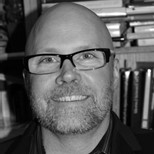 Jon Mills, PsyD, PhD, ABPP is a philosopher, psychoanalyst, and retired clinical psychologist. He is on Faculty in the Postgraduate Programs in Psychoanalysis & Psychotherapy, Gordon F. Derner School of Psychology, Adelphi University, USA; Department of Psychosocial & Psychoanalytic Studies, University of Essex, UK; and is Emeritus Professor of Psychology & Psychoanalysis at Adler Graduate Professional School in Toronto, Canada. Recipient of numerous awards for his scholarship including 4 Gradiva Awards, he is the author and/or editor of 30 books in philosophy, psychoanalysis, psychology, and cultural studies. In 2015 he was given the Otto Weininger Memorial Award for lifetime achievement by the Canadian Psychological Association.
Jon Mills, PsyD, PhD, ABPP is a philosopher, psychoanalyst, and retired clinical psychologist. He is on Faculty in the Postgraduate Programs in Psychoanalysis & Psychotherapy, Gordon F. Derner School of Psychology, Adelphi University, USA; Department of Psychosocial & Psychoanalytic Studies, University of Essex, UK; and is Emeritus Professor of Psychology & Psychoanalysis at Adler Graduate Professional School in Toronto, Canada. Recipient of numerous awards for his scholarship including 4 Gradiva Awards, he is the author and/or editor of 30 books in philosophy, psychoanalysis, psychology, and cultural studies. In 2015 he was given the Otto Weininger Memorial Award for lifetime achievement by the Canadian Psychological Association.
Jon Mills’ Current Book Series:
- Contemporary Psychoanalytic Studies, published by Brill 30 titles published since 2004
- New Imago: Series in Theoretical, Clinical, and Applied Psychoanalysis, published by Rowman & Littlefield 16 titles published since 2008
- Philosophy & Psychoanalysis, published by Routledge 18 titles since 2015.
Pathologies of Solitude
Barbra Taylor directs the Wellcome Trusted funded ‘Pathologies of Solitude’ research project at Queen Mary University of London. The project examines health-related aspects of solitude in Britain from the late seventeenth century to the present, in this research psychoanalysis is an important theme as the project explores how experiences of solitude have changed over the centuries and how these changes have affected individuals and society.
Solitude and Covid-19 by Barbra Taylor
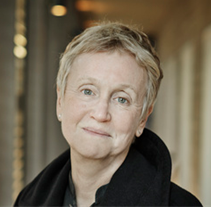 ‘Loneliness’ is a modern term; for most of Western history ‘solitude’ has done service for a wide range of human experiences, not all of them physically solitary. But the feelings we associate with loneliness have been described as far back as written records go. ‘When you have shut the doors and made a darkness within,’ the second century Stoic Epictetus counselled, ‘never…say that you are alone; for… God is within’. Yet in his Discourses Epictetus also evoked a ‘forlorn’ solitude characterised by helplessness, the absence of anyone to turn to in times of need.
‘Loneliness’ is a modern term; for most of Western history ‘solitude’ has done service for a wide range of human experiences, not all of them physically solitary. But the feelings we associate with loneliness have been described as far back as written records go. ‘When you have shut the doors and made a darkness within,’ the second century Stoic Epictetus counselled, ‘never…say that you are alone; for… God is within’. Yet in his Discourses Epictetus also evoked a ‘forlorn’ solitude characterised by helplessness, the absence of anyone to turn to in times of need.
The wretchedness of this condition has been vividly described by many since, including another psychoanalyst, Julia Kristeva, who writes, ‘When you say solitude, it can mean isolation…[when] you’re motionless, stoned, close to death’. Kristeva goes on to contrast this to a solitude that ‘happens in a situation when [you’re] in touch with something else. Although you’re alone, you can think about your lover, child, work…’. Alone but not isolated: solitude as in-touchness, a reaching-out to vital connections reliably in mind. But how reliable are these vital inner connections when the physical presence of others becomes impossible, when physical touch is gone?’
Find out more here.
The Distance Cure a conversation with Hannah Zeavin and Charlie Williams
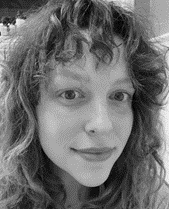 Hannah Zeavin discusses the role of distance in the history of mediated therapies with Solitudes researcher, Charlie Williams. Hannah Zeavin and researcher Charlie Williams have discussed Hannah’s new book ‘The Distance Cure’ and the history of teletherapies.
Hannah Zeavin discusses the role of distance in the history of mediated therapies with Solitudes researcher, Charlie Williams. Hannah Zeavin and researcher Charlie Williams have discussed Hannah’s new book ‘The Distance Cure’ and the history of teletherapies.
Psychotherapy across distance and time, from Freud’s treatments by mail to crisis hotlines, radio call-ins, chatbots, and Zoom sessions. You can read the interview here.
Josh Cohen in Conversation with Akshi Singh
Podcast: The Mind by Centre for the History of the Emotions
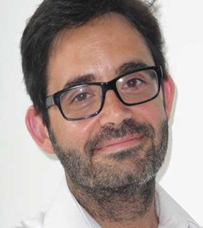 ‘Akshi Singh sat down with Josh Cohen to discuss the shifts that occurred when therapy moved online during the pandemic. They explore the losses and gains, how lockdown affected our psychic spaces, and our capacity to be alone in the presence of others.’ Find out more on their website.
‘Akshi Singh sat down with Josh Cohen to discuss the shifts that occurred when therapy moved online during the pandemic. They explore the losses and gains, how lockdown affected our psychic spaces, and our capacity to be alone in the presence of others.’ Find out more on their website.
What is the mind? Can we think of it as a ‘space’? Where might we look for the mind and what might be going on inside it when we experience solitude? These are some of the questions addressed in this episode. We hear from neuroscientist Sarah Garfinkel about the mind as an interface between brain and heart, and historian of psychoanalysis Akshi Singh about the mind as a space contained in objects that evoke memory and unlock experience. The poet and philosopher Denise Riley describes the imagined interiors of our bodies and the vulnerability of the inner voice, whilst psychoanalyst and writer Adam Philips discusses what might be happening in the mind when we can’t bear to be alone.
Contributors: Akshi Singh (Queen Mary University of London), Sarah Garfinkel (University College, London), Adam Phillips (psychoanalyst and writer), Denise Riley (University of East Anglia)
Presented by Hetta Howes. Curated by Akshi Singh. Produced by Natalie Steed.
Link to the podcast on their website.
BACP Grants Peer Review Panel (Research)
We’re looking for experienced individuals to help shape our BACP awards research funding. As a member of our new Grants Peer Review Panel you will evaluate funding applications, ensuring that any grant or award by BACP will support research of the highest quality – through a fair, transparent and robust process of peer review.
We’re looking for researchers and academics in counselling and psychotherapy and related disciplines, with a range of experience including senior research and teaching staff, early career researchers or PhD candidates. Find out more on the BACP website.
Jacob Johanssen publishes co-authored book: Event Horizon: Sexuality, Politics, Online Culture, and the Limits of Capitalism
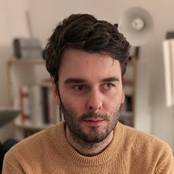 In an age where Silicon Valley dictates what it means to innovate a painless future, knowledge and enjoyment are fertile breeding grounds of political contestation. But it’s not exactly democracy. We are controlled through platforms that turn us into data for the profit of billionaires. Control has become so playful that we carry it in our pockets, as we continue to crave likes and followers.
In an age where Silicon Valley dictates what it means to innovate a painless future, knowledge and enjoyment are fertile breeding grounds of political contestation. But it’s not exactly democracy. We are controlled through platforms that turn us into data for the profit of billionaires. Control has become so playful that we carry it in our pockets, as we continue to crave likes and followers.
What is to be done? Should the Left continue to cling to the promise of a political Event, patiently waiting for a revolutionary rupture where new possibilities emerge? Is there a way to delineate its horizons amidst the chaos?
Through a psychoanalytic interrogation of the intersections of online culture, sexuality, and politics, Bonni Rambatan and Jacob Johanssen explore such horizons at the limits of capitalism. Event Horizon examines how capitalist ideology functions in our current moment, and, more importantly, how it breaks down. With the increasing urgency of formulating a proper Leftist response to the rapidly growing violence that seriously threatens the lives of marginalised communities, this book could not be more timely. Find out more on their website.
Texts from our Scholars
First edited collection of pieces on Jacques Derrida’s 1994 text Politics of Friendship
Featuring Dr. Timothy Secret, BPC Scholar, with a chapter on Narcissism and Friendship
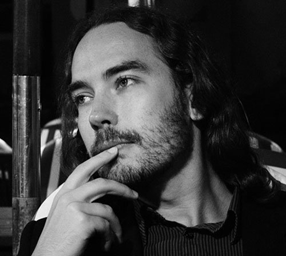 Published in January by Edinburgh University Press is the first edited collection of pieces on Jacques Derrida’s 1994 text Politics of Friendship. Derrida’s Politics of Friendship: Amity and Enmity (Edinburg: Edinburgh University Press, 2022), edited by Luke Collison, Cillian Ó Fathaigh and Georgios Tsagdis
Published in January by Edinburgh University Press is the first edited collection of pieces on Jacques Derrida’s 1994 text Politics of Friendship. Derrida’s Politics of Friendship: Amity and Enmity (Edinburg: Edinburgh University Press, 2022), edited by Luke Collison, Cillian Ó Fathaigh and Georgios Tsagdis
Despite its importance and influence, this is the first major edited volume of critical texts surrounding Jacques Derrida’s 1994 publication Politiques de l’amitié, with a range of established and emerging international voices contributing 23 chapters covering a wide range of themes in philosophy, politics, comparative literature and psychoanalysis. Of particular interest to scholars interested in psychoanalysis will be engagements with group and family structures, especially the distinction between fraternity and sorority and the usage of these notions at a national level, on mourning and spectrality, and the extended reflections on narcissism, Narcissus and Echo that are at the heart of Derrida’s own text. The volume is divided into three sections, ‘Responses’, ‘Echoes’ and ‘Polemics’, with the second section including a particular focus on themes relating to psychoanalysis.
BPC Scholar Timothy Secret offers a short text, ‘Narcissus as an Anti-Narcissus’, which uses ideas from Freud, Jean Laplanche and Nicolas Abraham to interrogate classical claims about friendship and philautia [self-love] from Aristotle, Cicero and Montaigne. Derrida’s pursuit of the ‘dream of an unusable friendship’, one whose value would not be justified by reference to the ego’s own aims, might seem hostile to both classical and psychoanalytic justifications. In particular, Cicero’s model of friendship – where the ideal doubling of ‘one soul in two bodies’ permits the hope of conquering death – appears to be dismissed in Derrida’s text as a narcissistic projection and identification, referring to him directly as ‘this Narcissus who dreams of immortality’.
However, Secret’s text aims to show that this need not be taken as pejorative since the entangling of self and other in the shifts from auto-eroticism to narcissism and object love allow for alternative understandings of this apparently selfish goal, alternatives that are visible in how we continue to carry the dead in mourning. This line is used as the basis for the preliminary development of a concept of archi-narcissism (distinct from primary narcissism), one rooted in Nicolas Abrahams’s notion of an archi-psychoanalysis that would be foundational for both philosophical and psychoanalytic conceptuality.
Related topics are addressed in many of the other 22 chapters, with Peggy Kamuf’s chapter ‘The Possible Echo’ in particular also addressing the notion of a transformed narcissism through the gendered relation of Narcissus and Echo, with many other chapters of likely interest to scholars.
Events
Discover the diverse array of our events within our community.
Below is just a small selection of upcoming events. To see the full list of events, visit our online calendar. You can also add your own event to our online calendar.
Connecting Conversation with Mike Brearley
Organised by: Severnside Institute for Psychotherapy
09 May 2022
Former England Test cricket captain, Mike Brearley, has had an illustrious career, including captaining England to victory over Australia in the Ashes.
Mike has long been working as a psychoanalyst, having also served as president of the British Psychoanalytical Society. This conversation between Mike Brearley, and psychoanalytic psychotherapist & SIP member, Mike Snudden, will be fielding topics such as sport and psychoanalysis, but no question from the online audience will be too broad. Visit their website for more information.
Mothers-and-Law: Clinical approaches with mothers in forensic settings
Organised by: Forensic Psychotherapy Society
12 May 2022
Anna Motz will discuss sadism in the maternal mind; and Gwen Adshead will explore the impact of disorganised attachment on the transition to motherhood. Lucy Baldwin will speak on the importance of factoring in maternal trauma and maternal emotions with mothers in the Criminal Justice System. Visit their website for more information.
In Conversation with Susie Orbach
Organised by: Wimbledon Guild Counselling Training
13 May 2022
Time: 17:00 – 18:00
Price: £20 + booking fees
Location: online
Susie Orbach is a psychotherapist, psychoanalyst, writer and co-founder of The Women’s Therapy Centre in London (1976) and The WTCI in New York (1981).
She is the author of many books. Her most recent In Therapy: The Unfolding Story is an expanded edition of In Therapy (an annotated version of the BBC series listened to live by 2 million people). Her first book Fat is a Feminist Issue has been continuously in print since 1978. Bodies (which won the APA Psychology of Women’s Book Prize in 2009) was updated in 2019.
She is the recipient of the Inaugural British Psychoanalytic Council’s Lifetime Achievement Award. She was elected Fellow of the Royal Society of Literature (FRSL) in 2019. She continues to help many individuals and couples from her practice in London.
Visit their website for more information.
IAFP 30th Anniversary Conference: Violence as a Public Health Emergency
13 – 14 May 2022
Organised by: International Association for Forensic Psychotherapy
This special two-day conference wishes to welcome not only those who specialise in forensic mental health but, most especially, all of our colleagues in the fields of counselling, psychology, psychotherapy, psychoanalysis, social work, and probation, as well as members of the criminal justice community and other related arenas. Visit their website for more information.
Working with Depressive Anxiety
Organised by: Foundation for Psychotherapy and Counselling
14 May 2022
Smita Rajput Kamble is a psychoanalytic psychotherapist who will provide an overview of psychodynamic theory and demonstrate how some patients can be helped to take steps into ‘working’ with depressive anxiety.
Go online for more information.
BACP Research Conference: Striving for equality, diversity and inclusion in research, practice and policy
Organised by: BACP
19 – 20 May 2022
Hosted in-person in Dundee and online. There will be three keynote presentations along with research papers, discussions (in-person only), methods workshops (in-person only), lightning talks, poster presentations and symposia.
Visit their website for more information.
Orthodox Masculinity and the Therapeutic Encounter: Working affirmatively with male clients
Organised by: Wimbledon Guild Counselling Training
20 May 2022
Time: 10:00 – 13:00
Price: £50+ booking fees
Location: online
Every part of our lives, whether we are aware of it or not, is touched by gender identity and the cultural and contextual meanings made of it. Over the last century, and in the last fifty years in particular, we have seen traditional gender roles gradually being challenged and dismantled in Western cultures as successive feminist and LGBTQ+ campaigns for rights, equality and liberation have questioned and troubled taken-for-granted patriarchal social structures.
In these turbulent times for gender politics in general and masculinities in particular, this 3-part seminar looks at the ways in which gender, and the unequal distribution of power and privilege connected with it, intersect in the therapeutic encounter. We unpack contemporary cultural and psychological dilemmas for men and how they may inform the therapeutic process and content with the aim of building an affirmative practice for those working with men and with those touched by the issues that affect the men in their lives.
Seminar Outline:
The seminar will comprise a mixture of presentation of relevant theory and research as well as clinical case vignettes. Importantly, there will also be plenty of time put aside for q&a and discussion as we move through the three main topic areas:
Gender, power and privilege:
We start by briefly unpacking gender relations and masculinity in particular from an historical perspective. We examine the ways in which gendered inequalities have been produced, and the power relations and discourses that drive them and sustain them. Although pervasive stereotypes are gradually being dismantled, normative reference points remain in popular culture and appear resistant to wholesale change. Visit their website for more information.
Soma and Body in the Clinical Landscape
Organised by: British Psychoanalytical Society (incorporating the Institute of Psychoanalysis)
20 – 21 May 2022
Drawing on contemporary British and French thought and detailed presentations of the clinical encounter with the bodily, this conference explores how, through the analytic process, both soma and body achieve psychic figuration. Find out more on their website.
Fashion and Psychoanalysis
Organised by: WPF Therapy
21 May 2022
Time: 10:00 – 11:30
Price: General Admission: £25
Location: online
In psychoanalytic literature fashion appears again and again as something ambiguous, both good and evil; something that shares with the psychological symptom a structure of enjoyment and suffering, pleasure and pain, irritation and relief. On the one hand clothes can supposedly help you out with embodied life, conceal the bits you feel ashamed of and accentuate the bits you’re proud of. But then again, fashion isn’t really about clothes in any practical sense, but about the endless replacement of clothes by other clothes — and especially the vilification of certain styles and the elevation of others. Fashion is therefore a system that’s perfect for producing the kind of anxiety that keeps people captivated — you have to stay constantly attuned or risk committing a shameful faux pas.
This talk will focus on the phenomenon of fashion, the clothing of psychoanalysts, and the kinds of behaviours around fashion you might come across in the consulting room.
Lecturer:
Anouchka Grose is a psychoanalyst and writer practising in London. She is a member of The Centre for Freudian Research, where she regularly lectures. She has written non-fiction: No More Silly Love Songs: a realist’s guide to romance (Portobello, 2010), Are you Considering Therapy (Karnac, 2011), From Anxiety to Zoolander: notes on psychoanalysis (Karnac, 2018), A Guide to Eco-Anxiety: how to protect the planet and your mental health (Watkins, 2020) as well as writing fiction: Ringing for You (Harper Collins, 1999) and Darling Daisy (Harper Collins, 2000). She also writes about art and fashion, and contributes to The Guardian, Radio 4, and Resonance FM.
Target Audience:
This event should be interesting and accessible for anyone interested in the topic, including qualified counsellors and psychotherapists and the general public. This event is open to all
Applications must be received by Thursday, 12 May 2022. Visit their website for more information.
